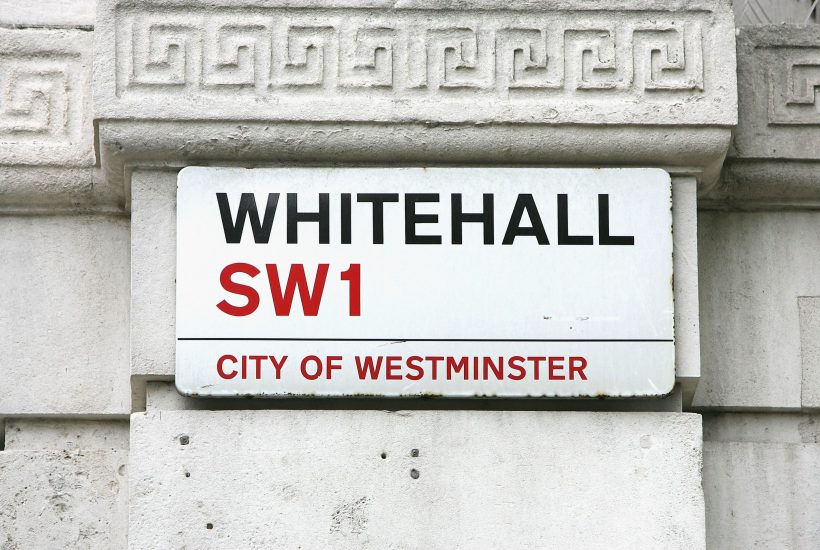The government is reluctant to start talking about life after the lockdown for fear of diluting its social distancing message, but just as post-war planning started during world war two, long before the fighting was over, we too should start planning for the post-coronavirus world. The Beveridge report on our social insurance system came out in November 1942, when it was by no means certain we would win. And the Bretton Woods conference, which established the post-war financial system based on the International Monetary Fund and the modified gold standard linked to the US dollar, took place in July 1944.
It may seem far-fetched to compare the coronavirus crisis with the second world war, but we can now see that the economic dislocation is potentially on the same scale. The government could start by appointing a Cabinet minister and creating a new department to consider what could be done to support private enterprise.
One powerful lesson of the crisis is that it is a disadvantage to rely too heavily on foreign suppliers. The immediate task of the new department should be to examine the viability of increasing domestic production. Many products wanted by consumers are provided partly by domestic producers and partly by importers. It would be useful to examine sector by sector whether home production could be increased. The government already has an advanced manufacturing supply chain initiative and it would be a simple matter to extend it. Complex international supply chains now seem especially fragile, quite apart from the concerns of carbon-reduction campaigners who wish to reduce international transportation.
Some will no doubt recoil from the idea of the government analysing each economic sector, but the aim is not to establish a command economy, it is to determine how best to encourage free enterprise. To succeed in world markets companies need competitive advantages. Some are the result of their own ingenuity, but many are created by governments and, crucially, can only be created by them. The doctrine of non-interventionism should not be allowed to prevent a government from performing those duties that it alone can carry out. The most obvious are an honest civil service and independent courts, but also vital are low-cost energy, low taxes, sound money, and a stable and competitive exchange rate.
One policy is a serious hindrance, namely the government’s hostility to fracking. It’s a luxury we can no longer afford. Now that coronavirus has shown us what a real emergency is like, we can see that the claims of climate campaigners that we face a climate emergency are exaggerated. Climate change zealots were trying to create a false sense of crisis in the hope of stampeding us into imposing drastic, economically harmful measures. In reality, there is a climate issue, not a crisis and we have plenty of time to plan ahead and make gradual adjustments that will reduce carbon emissions without the callous, radical dislocations of our way of life demanded by extremists.
The 2019 Conservative manifesto said: ‘We will not support fracking unless the science shows categorically that it can be done safely’. This policy found its way into the manifesto with little discussion and reversed the previous strategy of developing natural gas as a bridge fuel en route to a more renewable future.
It will not be possible to keep the government’s promise to spread prosperity to the North without fracking. Refusing to develop fracking is a blunder equivalent to turning our backs on the North Sea oil and gas industry. Imagine how much worse off we would be if we had not developed North Sea oil and gas. Output from the North Sea effectively rescued the Thatcher administration that took office in 1979. Production of North Sea crude oil had been 11.4 million tons in 1976, and in 1980 it was 77.7 million. The output of natural gas from the North Sea had been 5,060 million cubic metres in 1969. In 1980 it was 37,294. Exports of ‘crude and process oils’ had been just over a million tons in 1975 and shot up to 37.8 million in 1980. Output increased for many years, with oil output peaking in 1998 and gas in 2000.
The coronavirus crisis has already changed our priorities and reminded us that we have retained the strong sense of national solidarity that saw us through past challenges. It would be a mistake to rely on the economy bouncing back without active government support. This is not the same as having second thoughts about free enterprise, but it does entail recognising that the invisible hand will need a bit of a helping hand.
<//>
Got something to add? Join the discussion and comment below.
Get 10 issues for just $10
Subscribe to The Spectator Australia today for the next 10 magazine issues, plus full online access, for just $10.




















Comments
Don't miss out
Join the conversation with other Spectator Australia readers. Subscribe to leave a comment.
SUBSCRIBEAlready a subscriber? Log in